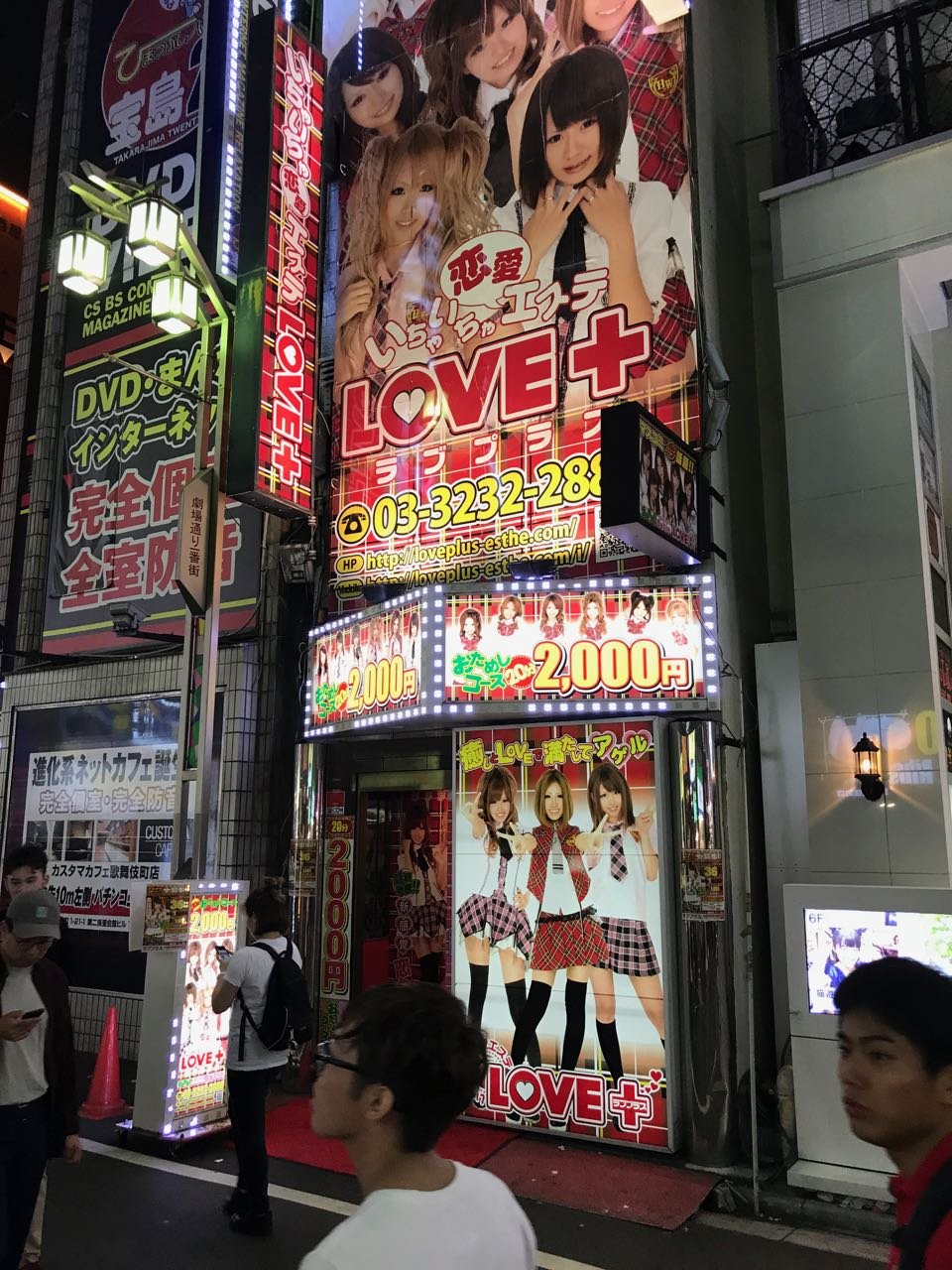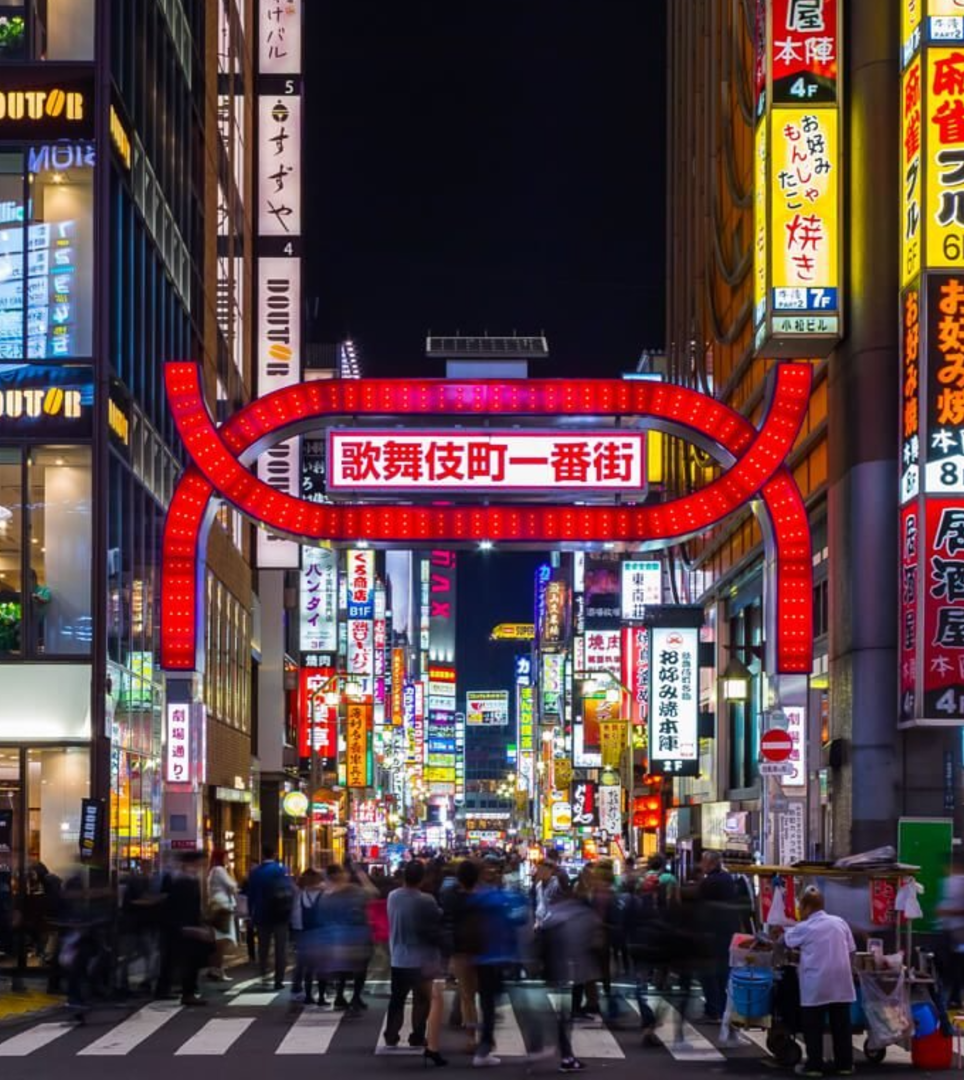Tokyo Love Story: Fuzoku

Tokyo Love Story is a Sabukaru series where we explore the love & sex industry of Japan, and take a deep look at what goes on inside and out of it. For the second edition, we take a look at fuzoku, Japanese shops that provide certain sexual services.
Lets face it : Sex sells. This isn’t a shocking revelation. The country Japan however, has yet to come to terms with just how big their sex industry is.
Studies show that there are approximately 300,000 women registered as sex workers in the year 2021 and the net worth of this industry amounts up to 2~3 trillion yen; proof that the industry is a valuable part of the tertiary sector within the country. Yet headlines were made about sex shops and services not being applicable for benefits during the coronavirus pandemic due to their unlawful nature. It's one thing to hold biases against a community, it's another to turn a blind eye and completely ignore their presence.
To understand as to why the stigma still stings when it comes to sex in Japan, let’s first take a deep dive into Japan’s rich history regarding sexual services.
HISTORY & THE BASICS
In terms of sexual services in Japan, the history goes way back to the edo period. At the time, women who offered sexual services were called ‘oiran = 花魁’ or ‘yujo = 遊女’ meaning women of pleasure and areas that allowed for such services to operate were called ‘yukaku = 遊郭’ meaning pleasure quarters that served as confined spaces where the women of pleasure could engage in such acts. Although now demised, ‘oirans’ or ‘yujos’ were considered top tier and given a higher stance than ‘geishas’; women who worked in the traditional entertainment industry now profoundly known for their face makeup consisting of a white pigment called ‘oshiroi’ and dressed in kimonos. Although constrained in their activities, it is evident that ‘oirans’ were worshipped for their craft.
Portrait of Oiran, Hanaogi of Ogiya by Chokosai Eiso
The most prominent red light district that exists to this day is Yoshiwara. Other licensed and renowned red light districts include Shimabara in Kyoto and Shinmachi in Osaka. Originally located near Nihonbashi and moving closer to modern day Asakusa, Yoshiwara housed many brothels that employed girls from poor households. A moat would surround the island of Yoshiwara to ward off criminals and children; hence the name ‘the floating world’ was given to the area. Whilst the name Yoshiwara rings an eerie tone for most, it was also considered the birthplace of many traditional cultural pastimes. Throughout time, the district would go through great changes, ultimately leading to the closing of many brothels that were popular during the time.
New Year's Day at the Ōgiya Brothel, Yoshiwara by Katsushika Hokusai
Scene in the Yoshiwara by Kitagawa Utamaro
The island of Yoshiwara
Although the establishment of new brothels is now illegal in Japan, registering under a different service name whilst using a pre-existing building is allowed. These include “PINK SALONS” where hostesses perform oral sex on customers in dimly-lit cubicles as well as “SOAPLANDS” where the customers are soaped up and serviced by staff in bathhouses. Other services include, esute and fashion health, massage parlors that grant special services for an extra charge and delivery health, services that entail women going to specific locations that are requested from the customer and many other services to meet the needs of certain fetishes and fantasies.
For the above to operate, there are rules and regulations that they must fulfill. Of the many that exist, one that comes to mind is the Anti-Prostitution Act, prohibiting the act of vaginal penetration between the service provider and their client. This rule is tricky however, as the act of penetration becomes valid if both parties state they are in love and have mutually agreed on this arrangement. As such laws tend to be quite obsolete in their nature, there are countless occurrences where police crack down on businesses to make sure they are abiding by the rules.
Shots of modern day Yoshiwara in Taito-ward
It seems that ‘honban-koi = 本番行為’ meaning unsimulated sex is not allowed both on/off screen and censoring off anything considered obscene with a cheeky pixelated coverup that hides the body part informally called the ‘mosaic’ may be the only way the country can justify the industry’s existence. This may have to do with the religious ties that the body part holds; the penis and vagina, very sacred parts of the body that are worshipped as they
CURRENT AFFAIRS
Photo by Mayu Uchida (@ifucktokyo)
It should be mentioned here that there are countless sex trafficking and other issues within the industry that remain. With reports showing that women, men and children from outside of Japan and within are still subject to human trafficking and exploitation of labor, the sex industry is surely still in the process of changing into an ethical business sector.
On the flip side of the coin, there are some that start a career in the industry with a clear drive and vision, genuinely interested in the job at hand. The Sabukaru team had the opportunity to talk to two industry experts like such, ignited with a passion for the industry to get the recognition it deserves. Those two experts are mistresses Hinako-san and Kinako-san. Mistress Hinako-san is a master at her craft with many tricks up her sleeves. Originally starting work at a BDSM bar to fulfil her fantasies, she came to realize her love for other activities including Kinbaku - a form of rope play utilising various tying techniques- as well as a genuine love for latex play. During the coronavirus outbreak, many sexual services and businesses took a hard blow, with restrictions that prohibited the confinement of people in small spaces.
Luckily for Hinako-san, online content engagement spiked, allowing her to continue creating content to meet the needs of her fans. Grateful for her success, she reflects back on the hardships that many of her peers struggled with during the pandemic. “During this time, the government enforced strict rules on which types of services were to close during the pandemic.
Surprisingly, sex shops were also included in this list which is why many shops decided to abide by the rules and stop providing their services during this time. Yet when it came down to providing grants to services that took a heavy blow due to being closed for long periods of time, sexual services and shops were nowhere to be found. It's ridiculous how they make us pay taxes and enforce regulations like other services yet when it comes down to actually supporting us, we get little in return. I wish the government would either completely leave us alone or take our industry seriously and allow the same rights that other sectors have”.
Photo by Mayu Uchida (@ifucktokyo)
For Kinako-san, the beginning of her career started from her fascination towards body modification that led to working in SM clubs in both Kyoto and Tokyo. Her recent endeavour is the creation of short film, ‘Tatami’, nominated as a competitor in the Berlin Porn Festival. The film explores the different dynamics between hetero and homosexual play; an area that shocked many as it was uncommon for people of different sexualities to interact in a sexual manner.
In terms of censoring and regulations within the industry, both Hinako-san and Kinako-san had similar responses.
Kinako-san: “Every law towards the sex industry is grey and nothing is properly defined. They make us pay taxes yet have nothing to offer us in return. People who are single mothers or living in poverty are not illegible for any support if they are in sex work, which I think is quite sad. But in terms of the mosaic, I met up with a guy in Italy who was researching about this topic and he mentioned that the mosaic could be considered as a piece of artwork.. It leaves room for imagination I guess which is quite nice. However, the act is obviously being done so why is there a need to hide it? The rule was made in the pre-war period and so old yet no one even considers changing it.”
Hinako-san: “The internet is full of uncensored content, yet the Japanese are adamant on keeping this rule. I guess platforms such as Instagram or Twitter operate in a similar sense as the nipple has to be covered for women and certain words can’t be used as hashtags in order for adult content to not be available towards children. So in a sense, it is a global phenomenon. In Japan, it is just more extreme”.
Regarding the increase in the number of sex workers in the country, according to Hinako-san, in Japan it is easier to get into sex work compared to other countries. “There are no background checks that are done on these girls. Girls who get into this industry usually consider it like a part-time job where they can earn extra cash on the side. So they don’t really think about the consequences of their actions; that it's not all just fun and games and sometimes the work is tough, that paying taxes is important even if the country doesn’t seem to give you anything in return.
When asked about what they would say to girls considering working within the sex industry in the future, both Hinako-san and Kinako-san stated that going into the industry having a long term career plan and finding someone you can trust is vital.
Kinako-san: “Girls these days don't consider the repercussions of their actions and usually don’t have a clear cut career path marked out.
Hinako-san: “Remember that anything can be leaked on the internet these days. Although with the creation of onlyfans and the Japanese spin-off version fantia you can easily start a career in the adult film or content industry, there are obviously losses to your gains.”
Kinako-san: “It's hard to admit but there is also an expiration date to your success. So it is something temporary. It's not all glamorous, that’s for sure. You also need to be very independent and strong willed unless this industry is not for you. Sometimes there will be times where you will financially be on your own, such times are hard which is why you need to be quite mentally tough in order to last within the industry.”
CONCLUSION
Some things are slowly but surely changing within the Japanese sex industry, yet all things considered the mosaic is here to stay. Maybe next time you come across one, consider observing it as an additional piece of artwork, allowing the viewer to leave it up to their imagination to fill in the missing pieces. Nevertheless, the Japanese sex industry will continue churning out big bucks; hopefully one day the government embraces its potential as a lucrative industry and grants them the same privileges that any other business has.
Thank you
@hinako_life_art , @misskinako
Photographs by @ifucktokyo
About the Author:
OL [Office Lady] in the day, sabukaru member by night, Ayana is a Japanese writer tackling controversial and oftentimes misunderstood social topics in the realms of modern-day Nippon.





